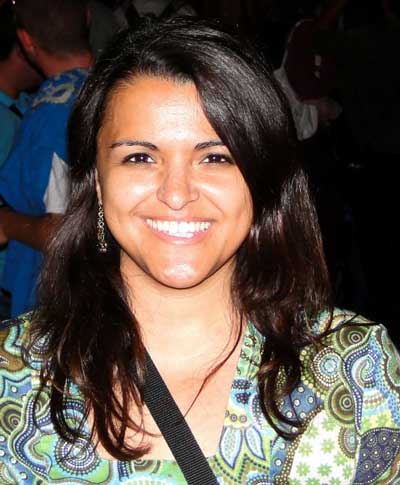
De-escalate
As a community of nonprofits on the Northside, we have spent the last two years testing strategies to reduce and prevent youth violence on the Northside. It is very much what I think about and discuss with my colleagues and residents every week, if not every day. And it’s a systemic issue: it’s not just about “those kids.” It’s about all of us, the attention and care they receive from adults and whether the community they grow up in sees them, honors them and nurtures them for who they are.
And so it was especially revealing for me to be at Shake the Lake in July, just 100 feet away when the shots were fired that night. I was scared, yes, but I was mostly FURIOUS. I was furious that my 8-year old daughter had to experience that, furious that I now had to figure out the precise balance between creating anxiety in my child versus teaching her about the world we now live in. And I was furious at our collective helplessness.
But after having some time to digest the experience, I remember that we are not, in fact, helpless. It is no doubt an uphill battle against an epidemic of racism, poverty, trauma and hopelessness, and, yet, it is also fundamentally about how we relate to one another.
What is clear is that what we have been doing isn’t working. We are saturated in a culture of violence, in which acts of individual violence are met with active and passive forms of state violence. The cycle of dehumanization continues.
And no matter whether we are perpetrators of violence, victims of violence, responders to violence, or bystanders to violence, our anger and fear are constantly escalated. We must find a way to break the cycle, not perpetuate it further.
As we begin to better understand the effects of chronic exposure to childhood stress, poverty and racism, we are also learning strategies to help heal human beings from the inside-out. It’s this trauma and sense of powerlessness coupled with the lack of basic human necessities — food security, stable housing, gainful employment, affordable healthcare, and trusting relationships — that’s at the root of so much of the violence we witness.
I’ve had the pleasure of working with Anthony Jack, a trained peace-builder who has written and taught internationally on the subject. An important tenet of that work is to look at the need behind the behavior. What is this behavior telling us about what this person needs? How can we engage them and our instituations in getting those needs met? Punishing people arbitrarily, in ways that are not directly connected to repairing harm — for example, simply incarcerating them — leaves everyone’s needs continuously unmet, and therefore leaves the door open to additional anger, trauma and repeated acts of criminality and retaliation.
Furthermore, when we shift to trying to understand the need behind the tone of someone’s voice, the look on their face, or a threatening action, we immediately de-escalate ourselves, too, and that allows us to keep from further heightening an already tense situation.
Through the Safe & Thriving Community initiative, we will soon be offering training in Nonviolent Crisis Intervention to Northside service providers, property managers and interested residents. We will also be inviting key influencers — those who help set organizational and institutional culture on the Northside — to participate in a first round of more intensive, peace-building training. This kind of work starts within each of us, with finding our own center so that we can respond to other people’s expressions of need more constructively.
The other side of the equation is to continue to help people from the outside-in: to find more responsive ways to get their basic needs for survival met, to ensure our institutions have the resources and training they need to serve our residents in a trauma-informed way, and to build a truly stable base of financial security and sense of belonging for each family.
I am grateful to get to do this work in a small slice of a larger city — we can collaborate and experiment here on a manageable scale, and maybe together, we can find some way to move the needle.
Finally, one of our key partners will be leaving the Northside as her position gets dissolved due to funding changes: Leslie McAllister has served for two years as the coordinator of the Northside Early Childhood Zone, a collaboration of home visiting services for families with young children. Leslie has been a tireless advocate for vulnerable families, and she has helped us change the culture in how we foster parent leadership. And I, as a woman of color, have been profoundly grateful to her as an ally in helping name and combat institutional racism and privilege. Leslie will be missed, but we’ll do our best to be better at this work because of what we’ve learned from her.